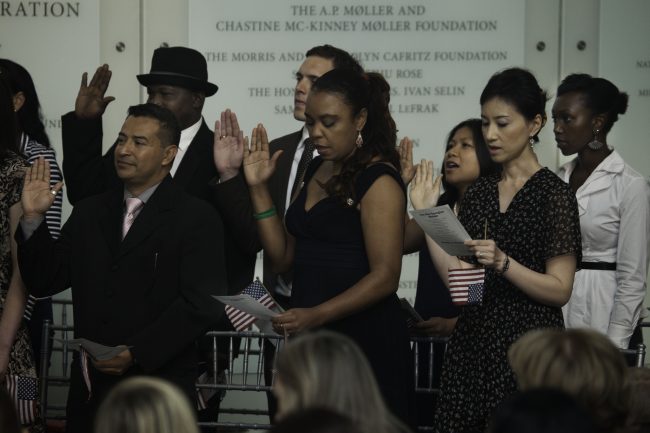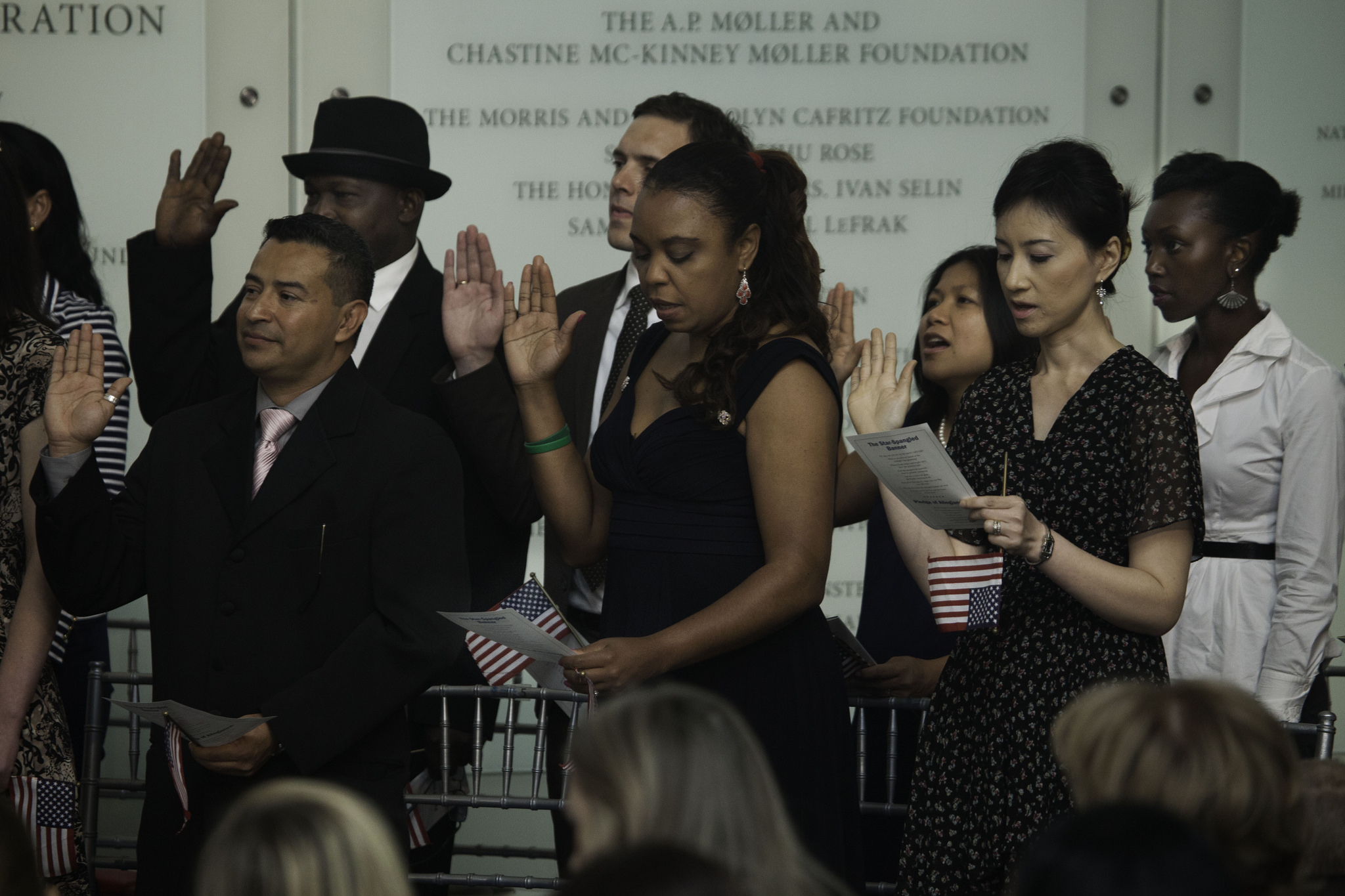|
Getting your Trinity Audio player ready...
|

The number of U.S. citizenship applications have significantly increased since the 2105 primary election cycle. With the current president spouting his disdain for immigrants during his campaign and since Donald. J. Trump took office the numbers show a large increase in petitions for citizenship.
The number of applicants, ages 18 and over, who filed for citizenship rose by a whopping 189,089 in 2016. There were 783,062 in 2015 and 972,151 in 2016, according to Homeland Security’s website.
If a foreigner holds legal resident status, aka green card holder, they are eligible to apply for naturalization if they are in good standing. Naturalized citizens hold all the rights and responsibilities as any other U.S. citizen.
Rules Governing Naturalization
In 2016, 753,060 naturalizations took place as compared to 730,259 the previous year.
Naturalized citizens cannot be deported, whereas, green cards can. It is likely with the increased fear of deportation, many lawful permanent residents (LPRs) may account for the astounding number of people applying for their citizenship. The events that could cause a person to be deported include:
- Misrepresent themselves as a U.S. citizen in an effort to vote,
- Fail to report their change of address in within the allotted time,
- Failure to establish or abandon their permanent residence,
- Commits any of various types of crimes, not necessarily a felony, or if caught with a controlled substance,
- Commit any fraud during the application process for a green card.
Citizenship or nationalization certificates are issued once new citizens of the United States. The difference is the latter is a foreign national and the other is a person born outside of the country whose parents are U.S. citizens. Both documents demonstrate a person’s rights to claim the same benefits as natural-born citizens.
The Naturalization Process of Green Card Holders
To be eligible for naturalization, an individual must be; at least 18 years old; has physically resided in the United States for a minimum of 2 ½ years; be an LRP; be a person of upstanding moral character. Further requirements are; be willing to swear allegiance to the United States; pass written and spoken tests to prove they can read, write, speak, and understand English.
Finally, applicants must take a written citizenship test consisting of 100 questions to demonstrate they have an understanding of U.S. government, how it was founded, the principles of its structure, and the way in which it operates. Additional questions on the test determine their knowledge of U.S. history, including the civil rights movement, knowing what major event occurring on Sept. 11, 1991, and be able to name one of the Native American tribes.
There are certain groups of people to the above-listed rules who are exempt from one or more of the general naturalization rules. These apply to spouses of United States citizens residing in the country or those married to citizens stationed abroad who do not meet the residency requirement. Two other groups apply to non-citizen members of the military.
Written by Cathy Milne
Sources:
Department of Homeland Security: Annual Flow Report: U.S. Naturalizations: 2016
NOLO: Can I Lose My Green Card and Be Deported?
U.S. Citizenship and Immigration Services: Naturalization Fact Sheet
Featured and Top Image Courtesy of National Museum of American History’s Flickr Page – Creative Commons License



